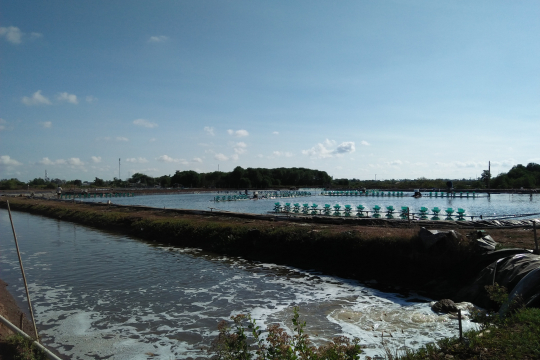This study explores small-scale Vietnamese shrimp farmers’ preferences for good aquaculture practices and proactive aquaculture development policy to encourage wastewater treatment and antibiotic use. Data were collected through a survey of farmers using two discrete choice experiments with a sample size of 450 respondents. The results of mixed logit and latent class models indicated that the farmers preferred good aquaculture practices in shrimp farming to conventional types, and the risk reduction and economic benefits of good aquaculture practices attracted shrimp farmers. However, many small-scale farmers did not prefer the integration of proactive aquaculture practices in development policy, despite the availability of a concessional loan to cover the initial investment cost, and they expressed less willingness to pay for wastewater treatment and antibiotic use regulations. To increase the adoption of good aquaculture practices, in addition to concessional funding policy, small-scale farmers also expressed a need for other support policies, such as the aquaculture insurance provision, subsidies for wastewater treatment, and compliance with regulations on antibiotic use.
What motivates farmers to accept good aquaculture practices in development policy? Results from choice experiment surveys with small-scale shrimp farmers in Vietnam
EfD Authors
Country
Sustainable Development Goals
Publication reference
Phong, T. N., Thang, V. T., & Hoai, N. T. (2021). What motivates farmers to accept good aquaculture practices in development policy? Results from choice experiment surveys with small-scale shrimp farmers in Vietnam. Economic Analysis and Policy, 72, 454–469. doi:10.1016/j.eap.2021.09.015

